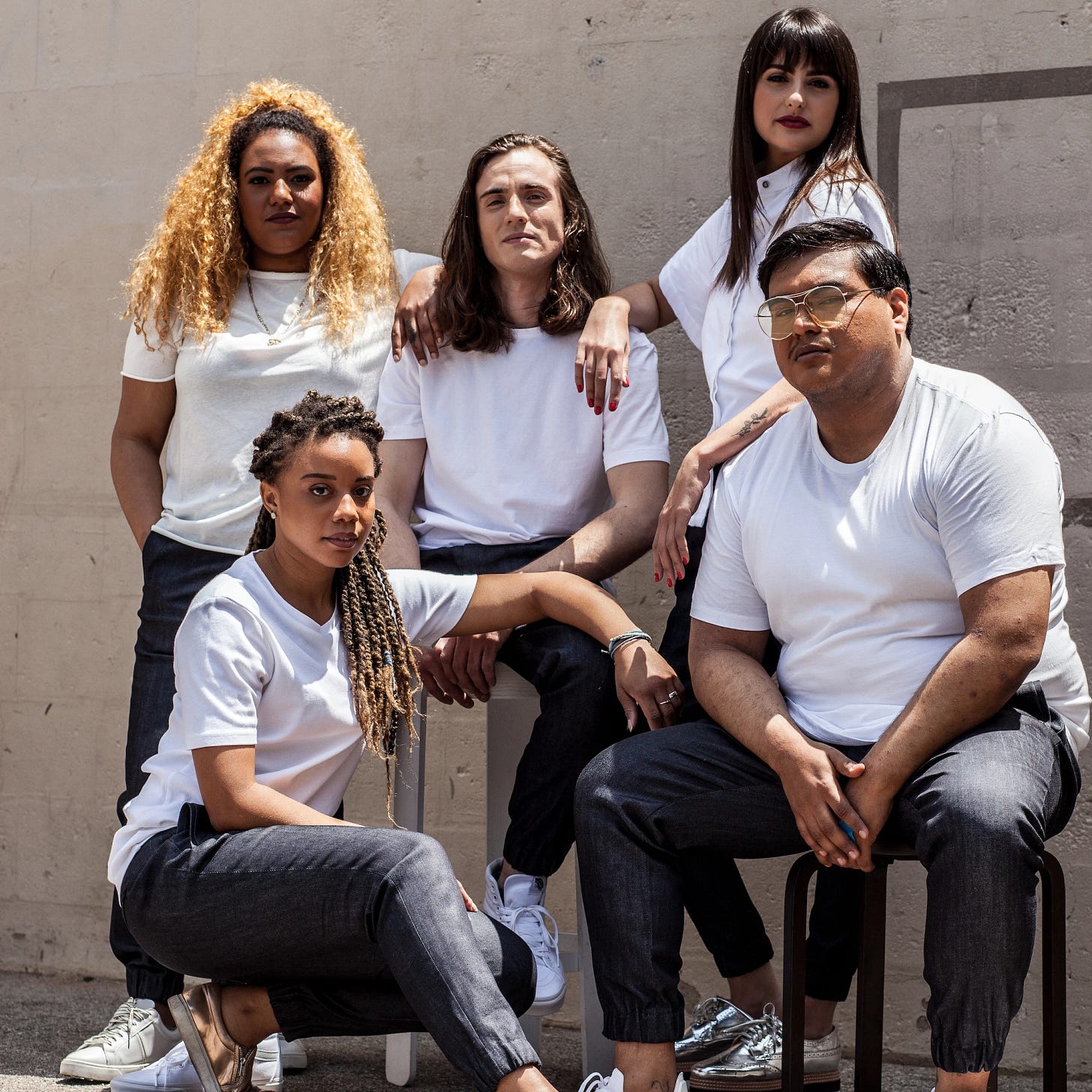Startup Spotlight: Sene
All Things Venture #011
Hey Everyone - Dez here from Apex Venture Studios. I’ll be honest, I’m not a huge Jim Carrey fan. I think he’s funny, I think he’s entertaining, but I most likely will never be someone who gushes over his movies. That being said, I recently came across a quote he shared at Maharishi International University’s 2014 Commencement. Like you, I have never heard of Maharishi International University, but that’s besides the point. What Jim Carrey aka Bruce Almighty aka Ace Ventura shared is this,
“You can fail at what you don’t want, so you might as well take a chance on doing what you love.”
I didn’t wake up this morning expecting to take inspiration from Jim Carrey, but I guess there is a bit of serendipity to life that we can all appreciate. What resonated with me most about that quote, is that I think many of us struggle with doing what we’d love to be doing, and doing what we think we should be doing. I used to play basketball when I was younger. Truthfully, I wanted to go to the NBA. The NBA was my absolute dream job, but at some point I told myself it wasn’t realistic (It 100% wasn’t I’m barely 6’0 and I’m a poor man’s Patrick Beverly). I limited my own options, and have struggled to find what I would truly love to do ever since. This specific example may be an exaggeration simply because like 0.00001% of the population could realistically make it to the NBA, but I think the main point of my example remains true.
The other reason why I wanted to share this quote is because when I read it, it reminded me of Ray Li the founder of Sene. Speaking with Ray was particularly enjoyable for me because we have a very similar background. We went to the same school for undergrad, same consulting job right out of school, and transitioned to working at startups (in his case he founded a startup). What struck me most about Ray is that when I think back to our conversation, he is someone who is absolutely doing what he loves. He’s riding the entrepreneurial wave and building while flying. We recently had the opportunity to catch up with Ray to learn more about Sene, their origin story, and what the future of retail could look like.

APEX: Can you describe what Sene is?
Ray: At Sene we make bespoke clothing essentials and we are transforming the relationship that people have with their clothing. We’re making ordering custom clothes as simple as ordering an Uber.
APEX: Got it. Custom clothing, on demand. As a user, would I need a measuring tape at home for when I want to make an order?
Ray: You don’t need a measuring tape. We have a proprietary measuring algorithm. You put in information like height, weight, you select body build sizes, sizes you typically wear, and you put in preferences on style and we take that to fit a technical pattern. You can be on the couch, on the toilet, it's all at your convenience.
APEX: And what led to you starting Sene?
Ray: I mean kind of similar to you, before starting Sene I was at a point in my corporate career where I was looking at all the partners at my firm and I realized I didn't want to become them. If I really take it back to why I started Sene, it's important to mention that I was born in China and moved to the US when I was 3. When I was younger a lot of clothes just didn’t fit me, and something I realized over time is that 70% of people are in between sizes. People of color are disproportionately impacted by this too and we shrug it off by saying, "this is just how the world is." At one point, I had a buddy who worked at Ralph Lauren, and he was able to get me a Black Label hook up. I spent $100 on alterations and it still didn’t fit. That showed me that no matter how expensive the item, there's only so much alterations can affect the original shape. At one point I had a custom suit made in Shanghai and a friend asked me if I could help him with one too. From there I kind of asked myself, what if all of our clothing could be customized, and what if you could turn it into more of a mass market behavior. That's kind of how Sene came to be.
APEX: Have you always had an interest in fashion?
Ray: Yeah, I've always loved clothes. What was super helpful was when I was at Interbrand (One of Ray's earlier jobs), my job was to use design to solve business issues. It was a launchpad to use human-centered design to design fashion products - traditionally fashion design is less inspired by the way customers live and more by the personal preferences of the creative director.
APEX: The fashion industry is notoriously competitive. Low barriers to entry, virtually no switching costs, and ,relative to technology companies, low margins. What gave you the confidence to start a company with so many dynamics working against you?
Ray: I would never invest or start a traditional apparel business - you have to get design, fit, color, and size right. And then you have to mass produce it. You could have one great season, but if you don’t plan well for the next season you get killed for it. At the start of Sene, we felt like we had to have a strong moat, and our moat is our data science. We focus on doing design really well, but we focus on the data science component just as much. We only carry inventory for fabric. We don’t carry a range of sizes. It allows us to serve many more people without carrying risk. Usually if you’re an apparel company – half of your capital is allocated to inventory. If you look under the hood of our company we look more like a software company.
APEX: In a zero constraint world, what’s a problem that you wish you could instantly solve within your own business?
Ray: Logistics is always tricky. For us it’s always about getting clothes into people’s hands quicker - but not at the expense of service. If we can deliver things quicker and make things quicker, that's a win for us.
APEX: How do you think about building brands that resonate with customers, and what do you think of the idea that no successful company is an overnight success?
Ray: Brand is so important. It’s the amalgamation of all your touch points and doing the ones that matter excellently. Sometimes so many of these new D2C brands feel like a variation of the same thing, designed by Red Antler. In terms of overnight success there are some, Away was an overnight success. Outdoor Voices was another example. But more often than not, you get the stories of companies that really have to struggle and it’s hard to have product market fit right away. We had to go through a period where people believed Sene was a cute idea and we weren’t going to make it and I think that’s more common. What matters is, as a founder, developing resilience, grit, and being creative. And also having a lot of luck. There is a myth of the founder hero – but it's simply not true. We have to thank our families, our friends, our sponsors, and as a Christian, I personally believe God is ultimately to thank. We are the sum of our parts and experiences.
APEX: What does success look like for Sene in the next 6 months?
Ray: Hopefully working on some major collabs.
APEX: Any advice for an aspiring entrepreneur?
Ray: Your initial idea is probably wrong. You have to be ruthless with killing ideas that aren’t right. If there is a top-level vision that is inspiring you, hold tightly to that, but you have to be quick to reject manifestations of it that aren't working.

TL;DR - Sene is a custom clothing studio that leverages data science to create made to order clothing
Go check out Sene here, and does anyone ever make it down to the bottom of these?? Comment with what your dream job was/is if you do.

